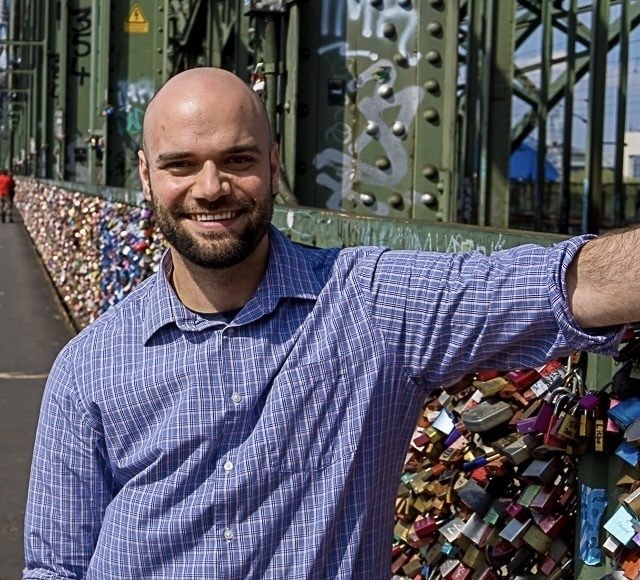By DAVID DUPONT
BG Independent News
It’s never been easier to gamble your life away.
Legislation and technology has expanded the means and availability of gaming, including on sports.
It used to be, noted Joshua Grubbs, a Bowling Green State University associate professor in clinical psychology, to gamble you had to find a bookie or go to the track. Casinos have opened up throughout Ohio and in other states.
Now in most places all the gambler has to do is log on to bet on a game.
“People who never had the opportunity to engage in gambling now have access to it,” Grubbs said. “There’s clear evidence that sports wagering is at an all-time high. That’s what we suspect, but we want to be able to measure that.”
Most of those gamblers do it for fun as a way to further engage in the sports they love. For others gambling causes problems that can derail their lives.

Grubbs recently was awarded a $400,000 grant from the International Center for Responsible Gaming with funding from Draft Kings. Grubbs is the principle investigator. His co-investigator is Shane Kraus, from the University of Nevada, Las Vegas, who received his PhD in clinical psychology from BGSU.
The study, Grubbs said, aims “to understand what predicts people who are doing this for fun, and what predicts people who are doing this in ways that leads to problems. … We need to understand why some people carry it too far, how to identify those people early before it shapes the rest of their lives. … The financial chaos is so incredibly disruptive.”
The three-year study will look at a sample of 4,000 Americans. Of those, 2,500 will be selected randomly. The other 1,500 will be a sample of those who have recently bet on sports.
The first questions the researches want to answer is what’s the prevalence of sports gambling. They want to compare those who gamble on sports with those who gamble but not on sports as well as those who don’t gamble at all.
Those prevalence numbers should be available after the first year, and then they’ll continue to collect and analyze data.
The researchers will be looking for the warning signs of potential problematic sports wagering behaviors, Grubbs said. “If we can identify those, can we come up with recommendations in the wild, so to speak?”
The idea is that firms such as Draft Kings can internalize those findings and better identify and guard against problem behaviors. Casinos already have such guardrails, he said.
Grubbs said individuals concerned about their gambling need to look at two things.
First, are they trying to win back money they’ve lost? “That’s a giant red flag,” he said.
When gambling someone should set the amount they can afford to lose, and then back away. If someone keeps trying to win their losses back “that’s a slippery slope.”
Second, are they lying about their behavior and losses to those close to them? Are they lying to their spouse about losing $200? Or to those in their fantasy league about all the other leagues they are in? Or to their children about where they spend their Friday nights because they don’t want to be judged?
If so, perhaps it’s a good idea to talk a to a mental health professional, Grubbs said. Gamblers Anonymous is also a welcoming community.
“Ohio has one of the longest and most established traditions in researching and treating problematic gambling behaviors,” he said.
It started over 40 years ago when the Veterans Administration Hospital in Brecksville started offering in-patient treatment for veterans with gambling problems.
Grubbs came to Ohio 2010 for graduate studies at Case Western, and he did his internship in the V.A. program. Through that he got connected with the International Center for Responsible Gaming and other entities involved in trying to prevent and treat problematic gaming.
He received his doctorate in summer 2016 and was hired by BGSU at the same time.
“Inherently I’m just fascinated by what leads people to become out of control in a behavior, but not substance related,” he said. “There’s a debate about whether it’s a compulsion or an addiction. What causes that out of control irresistible urge to engage in something that’s not clinically addictive.” These compulsions “keep the mind and body intact but destroy the life around it.”
Still gambling and other behavioral compulsions haven’t received the kind of funding that substance abuse has.
“We’re excited for the opportunity,” Grubbs said of the recent funding. It doesn’t stop there.
Grubbs leads the SPARTA (Sexuality, Personality, and Addiction Research Throughout Adulthood )lab at BGSU that focuses on these issues including gambling, compulsive sexual behavior, and internet pornography and how those relate to personality and concepts of morality.
“One of my goals is … for BGSU to establish itself as an institution that is really invested in studying these kind of behavioral addictions partner. … I’d like to see us build on this. We’ll see what happens.”



